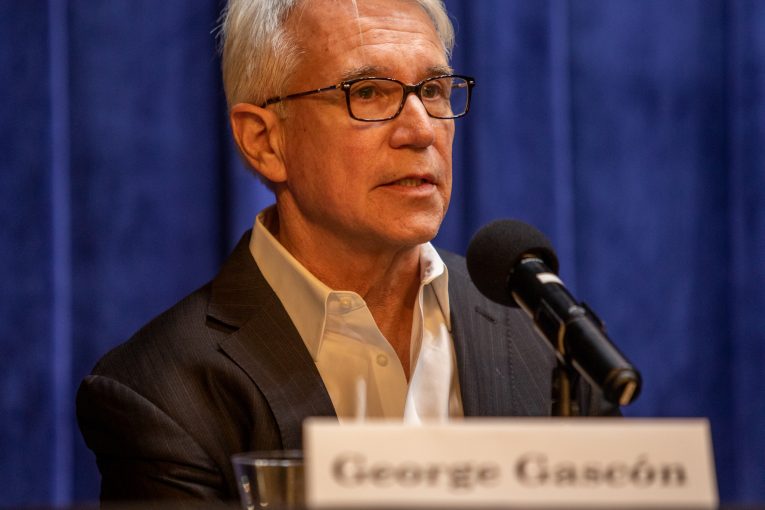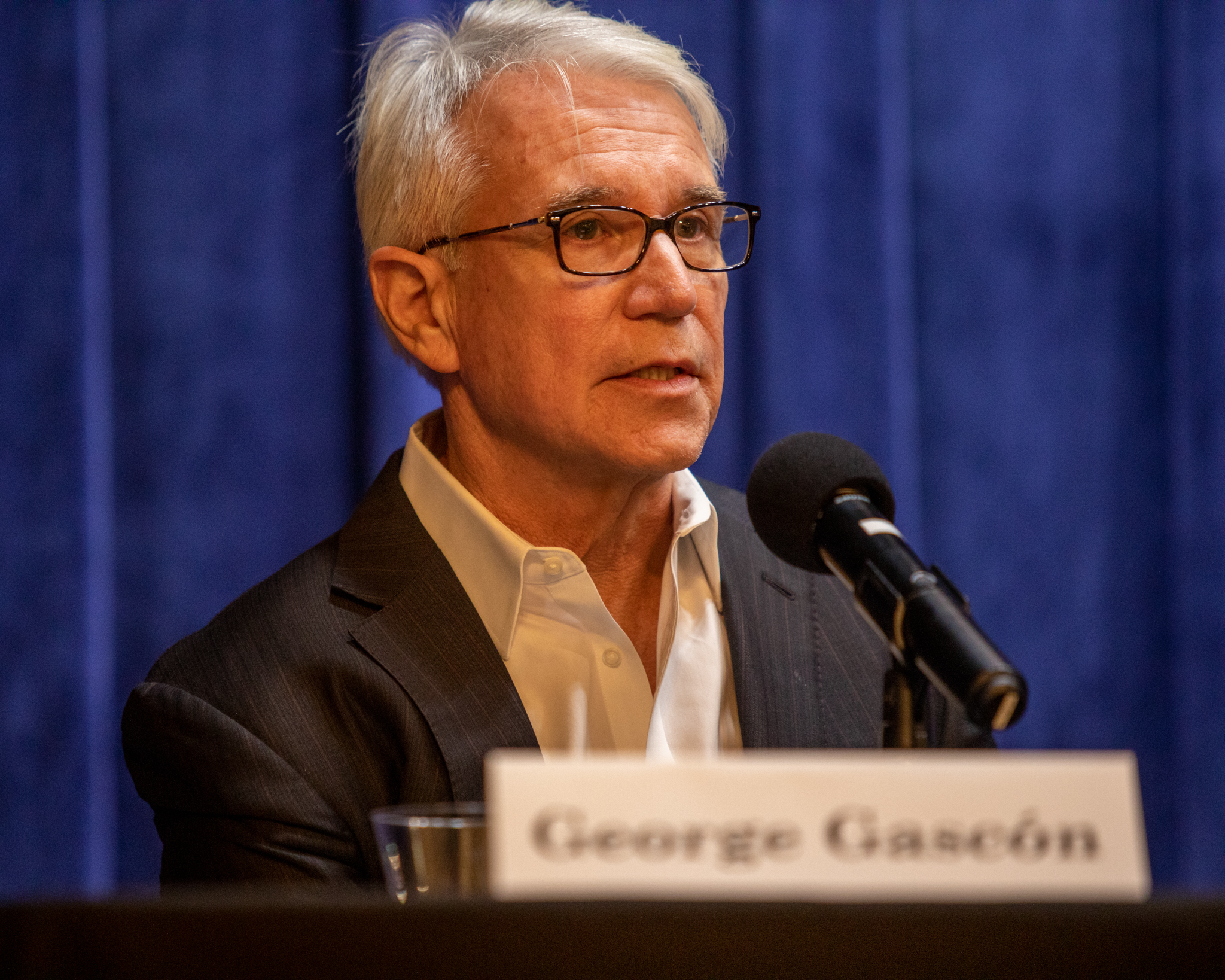

By David M. Greenwald
Recall is in the air again. Some Californians will remember the successful recall of Governor Gray Davis in 2003. While “California has some of the more permissive recall requirements in the country,” according to FiveThirtyEight.com, and while it seems likely to get it on the ballot (in part because a judge doubled the time for them to collect it, they predict “successful recall of Newsom (is) less likely.”
Likewise, George Gascón is facing a potential recall—they can’t actually recall him yet. While Michelle Hanisee has argued, among other things, that Gascón misled the voters on his intention, his campaign was upfront with the voters in that they intended to radically change how the DA’s office operated—and the voters probably had a good idea of what they were getting.
The result is that the 53-46 electoral victory by Gascón is not likely to be upended by angry deputy DAs and others who oppose criminal justice reform.
In fact, a recent article by the Appeal found just the opposite—published on Tuesday, it found that LA voters support expanded release of people from jails amid the COVID-19 surge.
“A new poll from The Lab, a policy vertical of The Appeal, and Data for Progress shows substantial support among Los Angeles County voters for a number of measures to reduce the jail population,” the Appeal reports.
“A strong majority (59 percent) of respondents in Los Angeles County—including 65 percent of Democrats and 62 percent of independent voters—favor releasing people charged with low-level offenses,  such as crimes that do not involve physical injuries to another person,” the poll finds, with just one-third of the voters opposing such a measure.
such as crimes that do not involve physical injuries to another person,” the poll finds, with just one-third of the voters opposing such a measure.
“Sixty-two percent of people favor releasing incarcerated people with less than 6 months left in their sentence,” it continues. “An even stronger majority (65 percent) of voters support releasing elderly incarcerated people and 55 percent favor releasing those who are more vulnerable to the virus as a result of co-morbidities like heart and lung disease so long as they do not pose a serious risk to public safety.”
The poll goes even further—the voters in Los Angeles, in fact, do not support “pre-trial detention,” which is basically bail reform.
The Appeal finds that people do not want to see people detained before trial unless strictly necessary.
“Do you support or oppose releasing anyone charged with a low-level offense, for example a crime that does not involve a physical injury to another person?” Fifty-nine percent either strongly or somewhat support such a measure. They find that “6 in 10 Angelenos support the use of tickets and citations as alternatives to jail to ensure court appearances with only a quarter (27 percent) in opposition.”
They support tickets or summons, therefore, as an alternative to jail to ensure court appearances—again, that is the core of bail reform and a centerpiece of the Gascón package.
Upon assuming office, Gascón announced he is immediately ending the cash bail system, making hundreds of people incarcerated eligible for release under a new pretrial release policy that took effect on January 1.
“The money bail system is as unsafe as it is unjust,” Gascón said. “The rich can be dangerous while the poor impose zero threat to society.
“The amount of money a person has in their bank account does not determine the danger they pose to their community,” he argued.
“Cash bail system criminalizes poverty, as people who are unable to afford bail are detained while they await trial for weeks or even months,” according to the progressive advocacy organization Center for American Progress.
Not everyone agrees. But the polling shows broad support for Gascón’s policies.
As Kate Chatfield, an attorney and advocate tweeted, “I think this polling cuts through a lot of the noise about @GeorgeGascon. Voters support his policies.”
She added, “Voters support decarceration: no $ bail/risk assessments; release children, the elderly & other vulnerable people; & no people in custody for misdemeanors & low-level offenses.”
As Patrice Cullors put it in a recent LA Times op-ed, “This movement toward criminal justice reform… is highly contentious in certain circles. Those most committed to failed approaches of the past are fighting the movement at every turn, with vehemence and unyielding passion.”
Gascón’s opponents waited barely two months before the attempt to remove him from office.
“Now that they are in office, they have followed up on these campaign promises, enacting policies designed to fulfill the mission their constituents approved,” Cullors writes.
She adds, “The backlash in California runs deeper than any particular policy or criminal justice outcome. For decades, tough-on-crime proponents occupied the high ground in public discourse. They advocated for increasingly harsher punishments, the overpolicing of communities of color, and leveraging the criminal justice system to address all of society’s ills. And the public accepted these advocates as righteous protectors of the victimized, presenting meaningful and appropriate solutions to the concrete problem of crime and disorder.”
But the polling out of LA, like the polling statewide on Newsom, shows that while there are clearly those who will be angered by such policies, and the recall process is permissive enough to allow entry with a small but dedicated group of opponents, the overall views in LA and California will make it difficult for those efforts to succeed.
—David M. Greenwald reporting
To sign up for our new newsletter – Everyday Injustice – https://tinyurl.com/yyultcf9
Support our work – to become a sustaining at $5 – $10- $25 per month hit the link:

Things have changed as far as voter perception goes, Gascon hasn’t been getting a lot of good press lately so unseating him isn’t out of the question.
The polling cited here just came out.
Yeah, we know all about polls and their accuracy, don’t we?
We’re seen that many don’t believe even the actual ‘polls’… the ones in November… remember, Trump won “in a landslide victory”… what was reported out by “the media”, Stecretaries of State, Governors, Electoral College, multiple courts (every one that had it in front of it), all “fake news”!
But, seriously, depending on who I get ‘polled by’, on the phone, I occaisionally like to lie to those folk, either to lull them into a false sense of security, or just “for the halibut”… but, am I being serious about that?
Yeah, and if you polled me as to whether I care about the outcome of a recall of Gascon, Steinberg, I could truthfully answer “not”… Newsom is another matter… will depend as to who his successor might be… could easily vote for his recall, but for reasons other than stated in the petition circurculating…
We have an election that occurred in November and polling done last week. They both say about the same thing.
There’s been a big change in sentiment since the election. I don’t think people realized what they voted for. We’ll see, this is headed for a recall election.
There is no evidence to support that claim that there has “been a big change in sentiment since the election.”